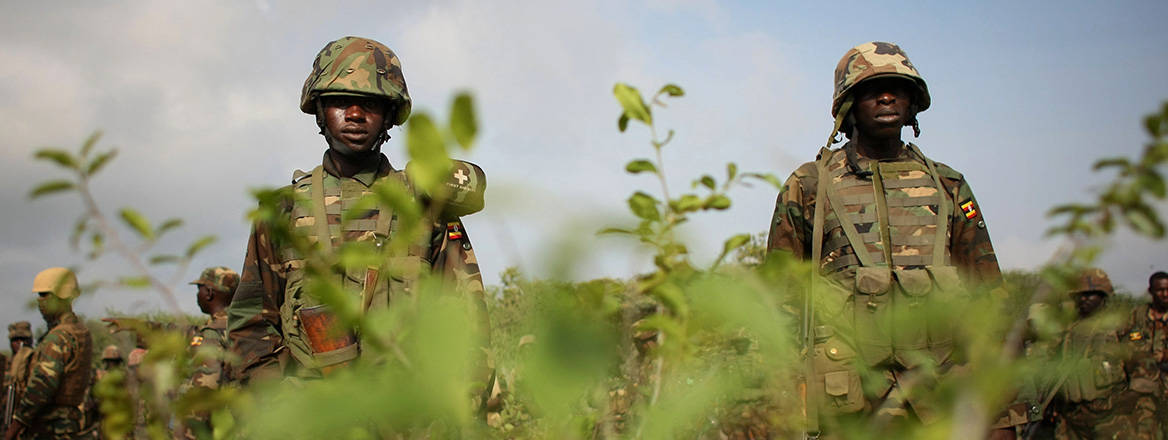Avoiding Past Mistakes: Why Stabilisation in Somalia Needs to Change
If lessons are to be learned from Afghanistan, now is not the time to withdraw from Somalia. Instead, the status quo of stabilisation approaches must fundamentally change.
As the current Somali parliamentary and presidential elections are further delayed, Al-Shabaab (AS) continues to consolidate its power, and armed violence persists across the country, Somalia remains fundamentally unstable. This can be seen most clearly in recent calls for President Joe Biden to send US troops back into Somalia.
Having faced instability for decades, Somalia has instigated numerous interventions intended to bring stability to the country. For instance, the Federal Government of Somalia (FGS) established the National Stabilisation Strategy (NSS) and related State Stabilisation Plans; the Wadajir Framework for Local Governance; the 2020–2024 National Development Plan; and the Somali Transition Plan (STP). The latest NSS aims to improve stability in Somalia through community dialogue; socio-economic opportunities; transparency and government legitimacy; and justice to all Somalis.
The international community has also invested heavily in ‘stabilising’ Somalia. From the African Union Mission in Somalia (AMISOM) – which will be replaced by the African Union Transition Mission in Somalia (ATMIS) – to the EU’s Training Mission (EUTM) in Somalia, the UN Mission in Somalia (UNSOM), and a range of other initiatives by the UK, the US, the EU and others, Somalia has experienced high levels of funding, support and engagement from a range of actors – all attempting in various ways to contribute to ‘stabilisation’ in Somalia.
Activities have included securing territory from AS (AMISOM supported by UNSOM); training and strengthening the security sector to enable the implementation of the STP (AMISOM, EUTM Somalia, EU Naval Force and EU Capacity Building); early recovery support through the provision of services (such as the EU’s Daryeel Stabilisation Support to Fragile Areas of Somalia, the UK’s Early Recoveries Initiative and the US’s former Transition Initiatives for Stabilization + programme); and the provision of multi-donor funds to support the development of a stable Somalia (the Somalia Stability Fund).
While some initiatives have achieved tactical or small-scale successes on the ground, stabilisation interventions in Somalia have largely been unsuccessful at the macro level
Stabilisation initiatives are largely centred on areas with a strong AS presence, and there are multiple different engagements attempting to build the state’s legitimacy by providing basic services in recently liberated areas. This can include building infrastructure, establishing fair power structures, setting up conflict resolution mechanisms, and providing socio-economic opportunities. The new ATMIS remains dedicated to carrying out offensives against AS, force generation and the transfer of security provision to the Somali state as defined in the STP.
While some initiatives have achieved tactical or small-scale successes on the ground, stabilisation interventions in Somalia have largely been unsuccessful at the macro level. Interventions have faced many practical challenges, including a lack of coordination and a disconnect between civilian and military actors and approaches. Yet one fundamental issue is that stabilisation is no longer perceived as a priority for the FGS, which is distracted by its own political survival and tension with Federal Member States.
The lack of success, combined with the increasingly challenging international context – made more complex by the Ukraine invasion, which has diverted international attention elsewhere – has led to an increase in donor fatigue as actors are unwilling or unable to commit to long-term, costly interventions to stabilise Somalia.
However, if any lessons are to be learned from Afghanistan, now is not the time to withdraw from Somalia. AS’s power is growing, including in Mogadishu. As a financial actor with an organised tax system, the group has established local courts, schools, health clinics, and even aid operations across Somalia. Emboldened by the Taliban’s takeover of Afghanistan, AS has appointed liaison officers for different clans; given tacit support to certain electoral candidates; and established dialogue with business leaders and academics regarding their roles under future AS rule in Somalia.
Lessons from Afghanistan and the future trajectory of Al-Shabaab demonstrate that sustained engagement is needed now more than ever
This development demonstrates a need to fundamentally change the status quo towards stabilisation efforts, which have focused on enhancing the capability and territorial reach of the government. As the government itself is contested and a critical actor in the conflict, these approaches often further entrench conflict dynamics and disincentivise the government from being more inclusive.
Time has shown that AS is unlikely to be defeated militarily. This means that stabilisation actors need to consider very carefully what the viable next steps are, and to do so in a manner that maximises buy-in from political elites, engages non-traditional international actors, and ensures cross-community ownership to get a true sense of the reality on the ground. This includes considerations as to whether AS should be included in any future political settlement.
The ongoing elections in Somalia might represent an opportunity for a new government to be elected and for stabilisation to re-emerge as a political priority. While stabilisation impact is currently limited due to the political climate, the election outcome could be an opportunity to reset the stabilisation agenda. Despite donor fatigue among stabilisation actors operating in Somalia, lessons from Afghanistan and the future trajectory of AS demonstrate that sustained engagement – which deals with both the underlying drivers of conflict, as well as the practical challenges faced by current approaches – is needed now more than ever.
The views expressed in this Commentary are the author’s, and do not represent those of RUSI or any other institution.
Have an idea for a Commentary you’d like to write for us? Send a short pitch to commentaries@rusi.org and we’ll get back to you if it fits into our research interests. Full guidelines for contributors can be found here.
Supported By
UK aid
This material has been funded by UK aid from the UK government; however the views expressed do not necessarily reflect the UK government’s official policies.
WRITTEN BY
Hope Kilmurry
- Jim McLeanMedia Relations Manager+44 (0)7917 373 069JimMc@rusi.org



